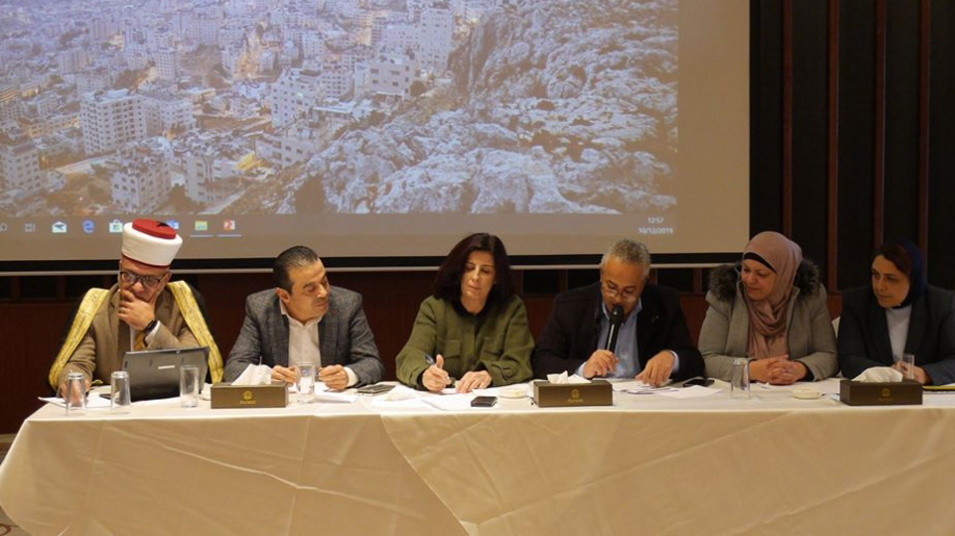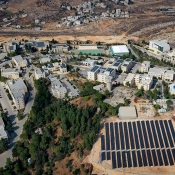Violence against women: Criticism of media coverage and absence of information
A lecture series organized by Birzeit University’s Media Development Center (MDC), the United Nations Office on Drugs and Crime (UNODC), and the Palestinian Ministry of Women’s Affairs (MoWA) emphasized the importance of accuracy and of avoiding sensationalism or causing scandals when reporting sensitive issues, such as cases of gender-based violence. It furthermore aimed to enhance media professionals’ knowledge about the services available to women victims of violence.
The workshops series took place in Nablus under the HAYA Joint Programme and as part of the 16 Days of Activism against Gender-based Violence campaign. It aimed at raising awareness among media professionals of their role when releasing information to citizens, as media are the most effective tool in efforts to spread information among a large audience in the shortest time possible. Journalists, justice practitioners and experts in social protection stressed the importance of sensitivity when telling stories that raise awareness of the plight of women who have survived violence.
The attending journalists criticized conceptual inconsistencies when information on cases of violence against women is reported, explaining that a revision of the underlying journalistic concepts is desperately needed. These concepts must assure that narratives are respectful of the individual women’s situations and preserved their dignity across all stages of dealing with their trauma.
Attendants stressed that this aim can be implemented only when a definite, written editorial policy for every medium is in place. Such a policy must be documented and published and needs to express serious sensitivity towards gender issues, which renders it more professional and impactful. Furthermore, feminist media institutions must be activated.
The experts also pointed out that merely substituting concepts is not adequate, as changes and adjustment must affect the methods journalists apply when investigating and reaching out to sources. It is necessary, they stressed, to do research, contact the violated groups and receive information from them directly, rather than relying on informal or even formal correspondence.
Workshop attendees confirmed the importance of programs that familiarize journalists with the tools available for the verification of information, photographs, virtual accounts, fake news and rumors and sensitizing them to the significance of the timely release of information, as this contributes to the termination of misleading rumors.
Amal Hamad, the minister of women’s affairs, pointed out that only 3 percent of Palestinian women receive access to their inheritance. Hamad called this situation a true catastrophe that stems from customs, traditions and society’s acquiescence to injustice imposed upon women, regardless of existing laws that stipulate women’s rights; she stressed that it also has a strong, negative impact on the country’s economy.
Mutasem Awad, a member of UNODC, stated that the problem is exacerbated by a general lack of awareness regarding the services that are available to women victims of violence. As many women are not resorting to the available services, an assessment of the true scale of the problem is difficult to obtain, he explained.
Nahed Abu Taimeh, gender coordinator at MDC, stressed the necessity of creating a special dictionary of the applicable and relevant legal terminology and suggested to establish a research center that works on analyzing regular reports about cases of gender-based violence in Palestine.
Abu Taimeh announced that further training programs for media professionals and journalists will be held in all governorates to highlight the ethical considerations journalists must reflect when covering sensitives cases, stressing the importance of prioritizing the interest of surviving women over getting the scoop.
Abu Taimeh pointed out the importance of issuing literature and awareness material that guide women to the correct bodies and institutions who can provide immediate protection. These bodies can be the police, public persecutors, the MoWA or other agencies that can provide protection and shelter. She called for setting up a database of all available protection services for women.







